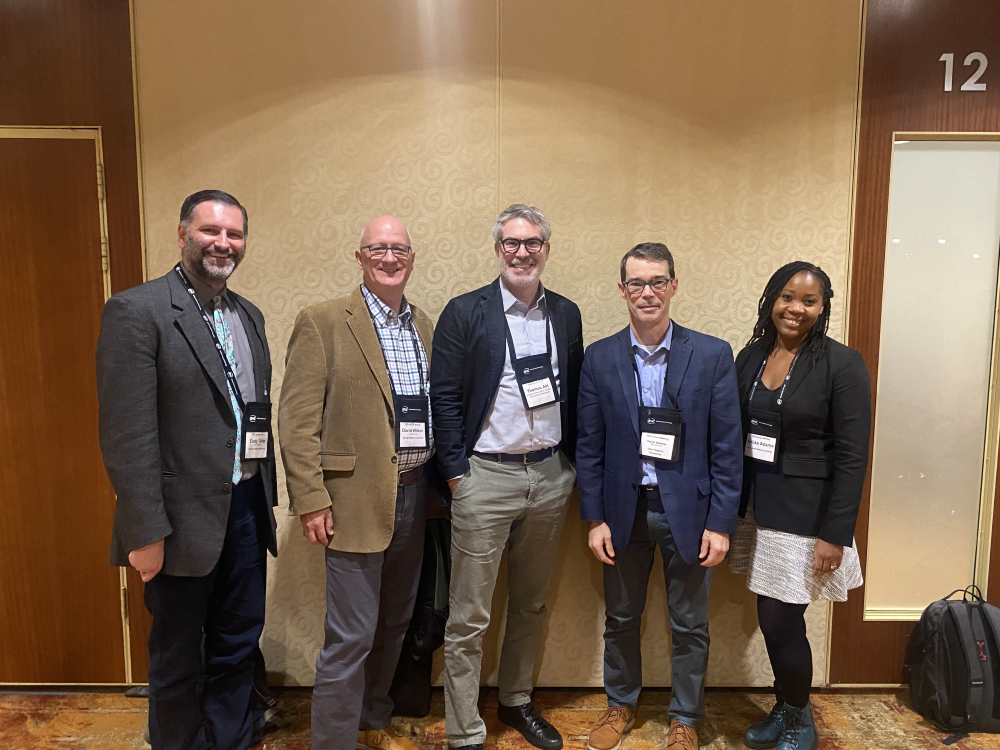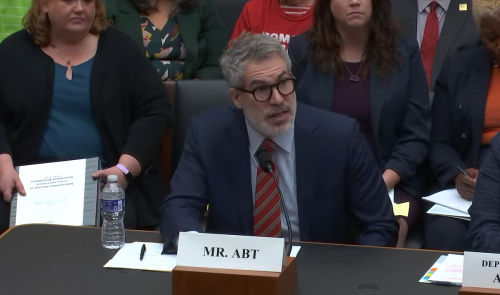The UMD center celebrates progress and outlines future plans in St. Louis and beyond
The Center for the Study and Practice of Violence Reduction, also known as the Violence Reduction Center (VRC), launched in late November 2022. Since then, the VRC has made noteworthy strides toward its goal of “saving lives by stopping violence, using science.”
Not long after its launch, VRC Founding Director and Department of Criminology and Criminal Justice (CCJS) Associate Research Professor Thomas Abt traveled to Knoxville, Tenn. to work with Mayor Indya Kincannon and her team on an intensive, multi-day workshop with city stakeholders. Together, they developed an anti-violence plan that was customized to meet the most pressing needs of the Greater Knoxville area. Knoxville leaders and the VRC have worked together to implement those strategies over the last several months, which have seen fewer gun-related deaths in the city compared to the previous year.
“The Violence Reduction Center is an invaluable resource for the City of Knoxville. Our partnership with the VRC is critical to the progress we have made in building our Office of Community Safety, engaging critical local partners, building a violence reduction plan, connecting with national experts, and starting implementation in less than a year,” said LaKenya Middlebrook, Knoxville’s Community Safety and Empowerment Officer. “The thought partnership, networks, and guidance the VRC shares with us is helping us save lives in our community.”
According to an early-November WVLT News article, data from Knoxville Police Department showed that there were 32 gun deaths in 2022, and 16 in 2023 so far.
“Though it is too soon to tell the impact of these strategies on violence in Knoxville, we are encouraged by changes in crime so far,” said Abt.
The VRC entered into a similar partnership with Boston Mayor Michelle Wu’s administration in early 2023, conducting a series of sessions with city leaders to inform a new plan for violence reduction that is in the process of being implemented.
The VRC is about to follow suit in St. Louis; the East West Gateway Council of Governments recently invited the VRC to convene experts and community members, analyze trends in violence, and develop a plan for violence reduction. Meetings are scheduled for early December.
“City by city, year by year, our hope is to make a concrete difference in the lives of citizens, working with our partners to keep them safe with strategies that are informed by both evidence and the wishes of the community,” said Abt.
The VRC also made significant strides with two research projects during its first year. With researchers from Arizona State University and San Jose State University, the VRC reviewed tens of thousands of individual research studies and selected the most rigorous evaluations of street outreach programs and practices for a first-ever systematic review of street outreach interventions, sometimes known as gang intervention or violence interruption programs, for The Campbell Collaboration.
Also for The Campbell Collaboration—an international social science research network—the VRC has been working with George Mason University Distinguished University Professor David Wilson and Senior Research Associate Catherine Kimbrell.
“My team at George Mason University is collaborating with the VRC to update Abt and Winship’s 2016 meta-review of what works in reducing community violence,” explained Wilson. “The aim of this work is to provide policymakers, practitioners, and other stakeholders with guidance on ways to reduce crime and violence in their communities.”
Preliminary findings from both projects were presented at the American Society of Criminology annual meeting in Philadelphia on Nov. 17, 2023.

With support from a number of philanthropic partners this year—including Arnold Ventures, the Charles Koch Foundation, Everytown for Gun Safety, the Joyce Foundation, the Harry Frank Guggenheim Foundation, and the Pew Charitable Trusts—the VRC has been able to grow to better meet these community and research needs. The VRC team now includes two graduate assistants from the CCJS doctoral program, Richard Hahn and Diomand Henry; Grace Magori, a CCJS undergraduate intern; and two affiliate researchers, Sara-Laure Faraji, a CCJS Ph.D. candidate, and Geoffrey Harrison, a Ph.D. candidate at the University of Maryland, Baltimore.
The VRC has already captured policymakers’ attention, too: Thomas Abt was recently asked to testify before the House Subcommittee on Crime and Federal Government Surveillance on violent crime in the District of Columbia (pictured above). A summary of Abt’s remarks can be found in Maryland Today, and full footage from the hearing can be found on the House Judiciary Committee’s website.
“Over the past year, I have witnessed VRC efforts to strengthen relationships between communities disproportionately impacted by gun violence and various law enforcement entities. I look forward to authentic dialogue and real-world solutions emerging from future empirical work,” said Rod Brunson, CCJS chair and senior advisor to the VRC since its inception.
To learn more about the VRC, or to donate, visit go.umd.edu/VRC.



